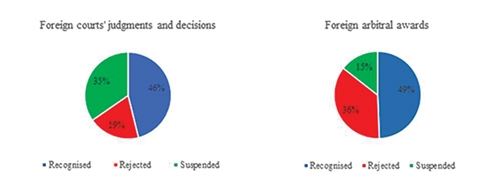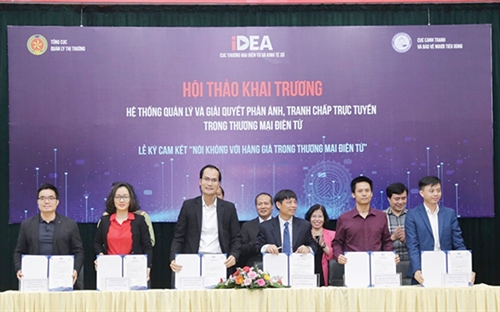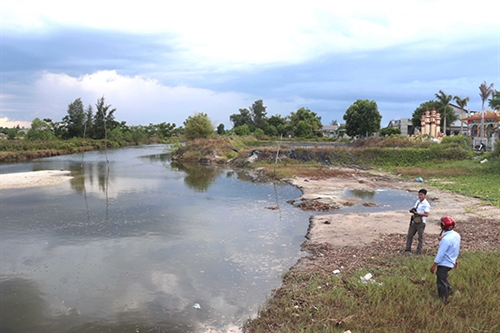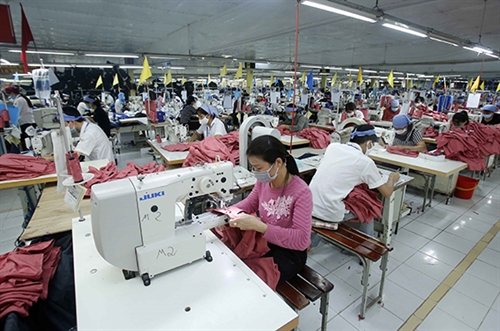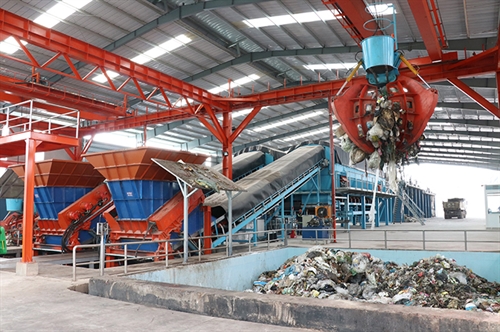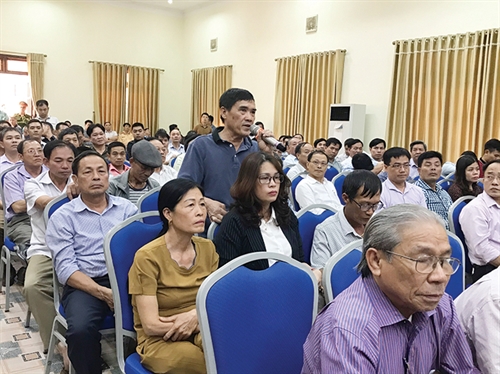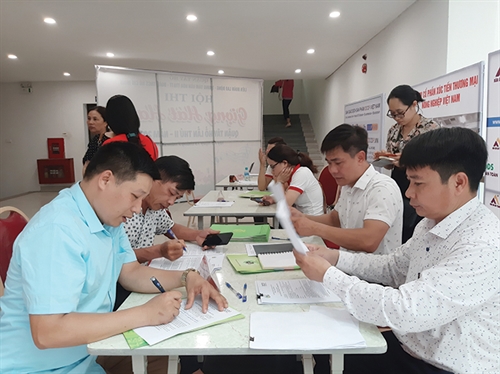Nguyen Hong Thao and Le Thi Anh Dao
The establishment of a legally binding instrument on biodiversity in areas beyond national jurisdiction and Vietnam’s need for participation
The access to, use and benefit sharing of biodiversity in areas beyond national jurisdiction (BBNJ) have not been comprehensively governed by existing international law, whilst marine genetic resources are becoming the subject of competition due to substantial economic benefits those resources provide. Cognizant of growing threats to the conservation and sustainable use of marine biodiversity in areas beyond national jurisdiction (ABNJ), the General Assembly of the United Nations has issued a resolution to establish an Ad Hoc Open-ended Informal Working Group to study BBNJ issues since 2004, followed by the convening of the Intergovernmental Conference with four sessions held between 2018 and 2020 to elaborate the text of the BBNJ instrument[1].
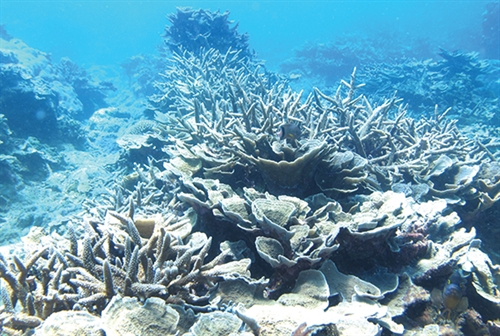 |
| Coral reef in the sea area of Nui Chua national park, Ninh Thuan province__Photo: Nguyen Thanh/VNA |
The negotiation process has gone through three sessions, with a revised draft text of the agreement having been proposed for consideration at the fourth session (ICG-4) since January 2020. However, the ICG-4, which was scheduled in March 2020, has been postponed due to the Covid-19 pandemic[2]. The issues that need discussion, as well as the divergence of stances among parties have nevertheless been evident. Upcoming negotiations now enter a substantive stage, hence the requirement for cooperation and active contributions of all participants in order to promptly establish an international legally binding instrument on BBNJ. As a matter of fact, informal discussions have been judiciously and creatively integrated with formal ones in the interest of consensus.
As for Vietnam, BBNJ is a novel issue since Vietnam’s activities have been mainly focusing on the Bien Dong (East Sea). The East Sea arbitral award in 2016 in the case filed by the Philippines against China affirms the existence of a high seas and seabed area in the center of the East Sea. Furthermore, there is a need for a change in awareness of Vietnam’s marine interests. These benefits are of an international nature instead of being limited to a region. This, thus, requires Vietnamese negotiators in the fields of foreign affairs, engineering, economics and environment to strive towards a comprehensive legally binding instrument on BBNJ, which would be derived from and harmonized with the 1982 United Nations Convention on the Law of the Sea (UNCLOS), in addition to safeguarding Vietnam’s best marine interests in the process of globalization and integration.
Unresolved issues and Vietnam’s participation
Purpose of the instrument
Concerning the Preamble of the draft text, Vietnam, along with other developing countries, stresses that the instrument must demonstrate the principle of respect for the sovereignty, territorial integrity and political independence of all States. To access, use and manage BBNJ must not prejudice the rights, jurisdiction and duties of States under the UNCLOS. The rights and jurisdiction of coastal States in all areas under their respective national jurisdiction, therefore, would be respected in accordance with the UNCLOS. Additionally, BBNJ management activities should meet the needs of present and future generations[3].
The principle of “the common heritage of mankind”
On the one hand, developed countries opine that “the freedom of the high seas” shall be applied to marine genetic resources[4]. In other words, all nations, natural persons, coupled with legal entities have the right to exploit and utilize such resources. This would consequently cause inequalities on the ground that technologies for exploiting marine genes to develop pharmaceutical, cosmetic, and other commercial products are in the hands of developed countries.
Vietnam and G77 countries, on the other hand, firmly uphold that the principle of “the common heritage of mankind” provides the legal foundation for a fair and equitable regime of conservation and sustainable use of BBNJ, which include the access to and sharing of benefits of marine genetic resources (MGRs). The rationale for this view is that marine genetic resources are widely exploited by developed States; meanwhile, victims of environmental degradation in the High Seas are the entire humanity. According to the principle of sustainable development, every country has an obligation to conserve resources for not only the present but future generations as well. Moreover, there are usually interactions of the conservation and management of biological resources with measures implemented in exclusive economic zones and the high seas. In the light of these two groups of views, the concession thereupon has resulted in a draft text of the agreement having no provision prioritizing which principle to apply; instead, the issue would be addressed by regulations governing the right to access and exploit marine genetic resources on a free and open basis. Nonetheless, the principle of “the common heritage of mankind” has been recognized in Article 5 of the draft agreement concerning general principles and approaches, whilst the freedom of the high seas is not even mentioned. This could be seen as a victory for the G77, which includes Vietnam.
Access
Article 1.9 of the draft agreement offers two options for the definition of marine genetic resources, with the first clearly providing a broad scope with varieties of marine genetic resources and is derived from the term “genetic material” as stipulated in the Convention on Biological Diversity (CBD). The second option, meanwhile, is derived from the definition of “genetic resources” under the CBD. However, both alternatives have not differentiated genetic resources in fish as a commodity from rare genetic resources connected with BBNJ. In the light of Articles 8 and 1.9 of the draft agreement, along with the narrow definition of “genetic resources” under the 2008 Law on Biodiversity of Vietnam (Article 3.22), it would be reasonable for Vietnam to opt for a broad definition of marine genetic resources.
Due to the principle that MGRs are the common heritage of mankind, the definition of “access” should specify its objectives, the authority to license and supervise, the material scope, coupled with the benefit-sharing mechanism. In particular, Article 1.1 of the draft text defines that [1. “Access” means, in relation to marine genetic resources, the collection of marine genetic resources [, including marine genetic resources accessed in situ, ex situ [and in silico] [[and] [as digital sequence information] [as genetic sequence data]]].]
The 2008 Law on Biodiversity of Vietnam merely defines in situ, ex situ conservation and regards in situ conservation as a key measure, combining in situ with ex situ conservation[5]. Regarding Vietnam, based on the principle that MGRs are the common heritage of mankind, the right to access should be extended indefinitely not only to the above four genetic resources but to related activities and future development as well. In addition, the right to access needs to be segregated specifically for marine scientific research and commercial production purposes. Vietnam particularly would join G77 countries to fight for a definition of access that would demonstrate all the four sources listed above and be associated with the authority to license. If this definition were stipulated under the final instrument, Vietnam’s Law on Biodiversity, including relevant documents, would have to be promptly revised in accordance with the Convention in order to safeguard novel rights and interests of the country.
Sharing of benefits
The sharing of benefits must adhere to the principle of equity. Compared to Article 11 of the draft text, Article 61 of the 2008 Law on Biodiversity of Vietnam has not addressed the situation in which Vietnamese legal entities and natural persons could access to genetic resources within ABNJ and be entitled to the sharing of benefits obtained therein.
Area-based management tools (ABMTs)
Pursuant to the draft text of the agreement, ABMT means a tool, including a marine protected area, for a geographically defined area through which one or several sectors or activities are managed with the aim of achieving particular conservation and sustainable use objectives [and affording higher protection than that provided in the surrounding areas]. Most countries actually consent to the definition of marine protected area (MPA) as stipulated in Article 1.10 of the draft text. MPA, thereby, means a geographically defined marine area that is designated and managed to achieve specific [long-term biodiversity] conservation and sustainable use objectives [and that affords higher protection than the surrounding areas].
Article 16 of the 2008 Law on Biodiversity of Vietnam only provides for the establishment of common conservation zones without mentioning the cooperation in establishing national and inter-State marine protected areas. Participants could compromise on a definition that considers marine spatial planning and marine protected areas. Vietnam, in particular, should emphasize that the establishment of ABMTs must be based on the latest scientific knowledge and take into account indigenous communities, local residents as well as management areas. ABMTs are not within national jurisdiction but are related to environmental management measures in waters that fall under national jurisdiction. Furthermore, ABMTs must likewise be proposed and implemented by States.
In addition, the process of decision making, management and supervision of ABMTs should be specified. Vietnam could support the principle of establishing a common MPA to adopt appropriate measures to protect and conserve marine biodiversity beyond national jurisdiction. Right in the East Sea, there are various initiatives to establish MPAs within the Spratly Islands. There also exist new forms of MPA such as long-term or short-term MPAs (in the form of mobile MPAs). Due to their mobility and changes of the ocean, mobile MPAs are variable over time (by season, month, inter-season) and space (in an ocean, inter-ocean, inter-basin). This issue should, therefore, be noteworthy in the BBNJ negotiations.
Environmental impact assessment
The draft text of the agreement defines “strategic environmental assessment” (EIA) along with “cumulative impacts”. EIA under the draft instrument is akin to Vietnam’s Law on Environmental Protection (2014 and 2020)[6]; however, the definition of EIA requires more specific environmental assessments. Vietnam’s Law, additionally, merely governs projects within waters falling under national jurisdiction, hence no definition of “cumulative impacts”. Moreover, Vietnam has not had sufficient scientific and technical conditions to undertake cumulative impact assessments. As a result, the EIA regulations under the upcoming BBNJ instrument would have a certain impact on Vietnam’s law upon accession.
Capacity building and transfer of marine technology
While all countries support capacity-building and transfer of marine technology, provisions concerning scope, obligation, forms of transfer, level of cooperation are controversial issues. The sharing of information could act as an intermediary mechanism to facilitate access to traditional knowledge. This mechanism would consist mostly of an open access network-based platform, comprising a network of experts and practitioners in relevant fields.
Vietnam’s Law on Science and Technology (2013) defines neither marine technology nor transfer of marine technology, plus that the Law is only applicable to domestic scientific and technological activities. Furthermore, the international integration on science and technology according to Article 71.5 merely imposes the obligation to seek and transfer foreign advanced technologies into Vietnam. Pursuant to the draft text, the transfer of marine technology, meanwhile, is a priority for developing States. Vietnam, as a participant in the BBNJ negotiations, should express support for a broad definition of marine technology and transfer of marine technology, in addition to considering the latter as a compulsory obligation with a monitoring and enforcement mechanism. The country, moreover, should take advantage of opportunities to access advanced marine technologies in the field of marine genetic resources management.
Other issues
Participating States have agreed that the Conference of the Parties (COP) would be the most competent body to oversee the implementation of the agreement, which would be supported by the funding provided through different sources[7]. Nevertheless, the question concerning whether such funding shall be voluntary or mandatory would have to be addressed at the fourth session[8]. In fact, developing countries, including Vietnam, are interested in launching a fund on a voluntary basis or dealing with the whole package.
The draft also proposes the provisions relating to the settlement of disputes set out in Part XV of the UNCLOS apply mutatis mutandis to any dispute between States Parties to this agreement. This would be beneficial to developing countries, including Vietnam, since the above mechanism allows suing countries for violating other’s interests without participating in the settlement in Court.
Conclusion
The BBNJ instrument is a complement to and under the UNCLOS. To participate in the BBNJ negotiations from the outset has offered Vietnam, as well as developing countries, a considerable advantage in establishing and maintaining a legal order at sea, in connection with equity, respect for sovereignty and interests of all members. The negotiation process is, furthermore, an opportunity for the international community to reform the ocean governance with a view to eliminating current shortcomings. The conservation and sustainable use of the sea, including marine biodiversity resources therein, would contribute to eradicating poverty, assisting in the sustainable economic development, providing more sources of sustainable livelihood, along with enhancing resilience and adaptive capacity against impacts of climate change. Through negotiations, Vietnam has an opportunity to conserve and sustainably use the East Sea, coupled with access to biodiversity resources in other seas. As a matter of fact, Vietnam’s law only provides that the State prioritizes cooperation with bordering countries through the following activities: Exchanging information and forecasts about the biodiversity situation and change; coordinating in managing biodiversity corridors and transnational migration routes of various species; and protecting migratory species[9]. Additionally, to participate in the negotiations lets Vietnam uphold the role of the UNCLOS as a comprehensive legal framework governing all activities at sea. New legal instruments, thus, would not prejudice the rights and obligations of States under the UNCLOS. Concurrently, Vietnam continues to promote international cooperation, capacity-building and transfer of technology between developed and developing countries in terms of the conservation and sustainable use of biodiversity, thereby forming a legal basis for countries lacking marine technology to access research achievements and develop their own ability to reach the high seas and seabed areas in the future. Participating in negotiations also deepens Vietnamese administrators’ understanding about rights and obligations to the world’s biodiversity resources, whereby domestic laws would be revised in order to fully protect rights and interests of the country, as well as contributing to a fair and equitable legal order in the world and the region.-
